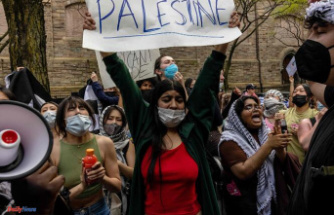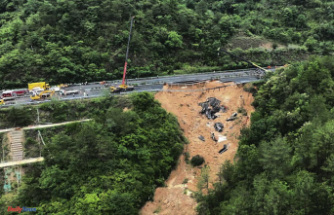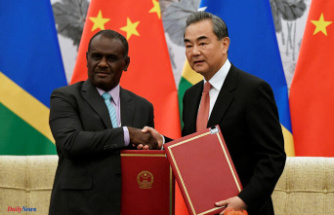Rep. Neal Dunn, a Florida Republican and Vietnam War Veteran, evoked scenes from the U.S. military withdrawing Vietnam. This left many Vietnamese who had worked with American forces fearing death and detention.
"We can't do it again. This cannot happen again. "We must bring back... all those who were so important for us in combat," Neal stated, exhorting fellow lawmakers to support the bill. "Please don't abandon America's friends again."
Rep. Jason Crow (a Colorado Democrat, a former Army Ranger, who fought in Afghanistan), introduced the bill that allows for 8,000 additional visas to translators and other people who work with U.S. troops and civilians in Afghanistan. The visa requirements are also relaxed.
26500 special Afghan visas have been allocated at the moment.
The House approved the new measure 407-16 and sent it to the Senate. All the Republicans cast no votes.
The U.S. military involvement in Afghanistan was to be ended by President Joe Biden on Sept. 11. This will end a U.S. military mission in Afghanistan that failed to achieve its primary goal of eliminating the al-Qaida plotters from the 2001 attacks. However, it did succeed in halting the Taliban rulers in Afghanistan and stabilizing a Kabul-based elected government.
According to the Pentagon, the withdrawal of the United States is 95% complete and will be complete by August 31.
According to Army General Mark Milley, Chairman of the Joint Chiefs of Staff Wednesday, the Taliban appear to have "strategic momentum" as they continue to claim more land and place increasing pressure on key cities.
Biden's administration claims that there are currently 20,000 applicants, with half of them not having completed the initial stages of visa review. Former Afghan workers are also allowed to bring their close relatives.
California Republican Rep. Tom McClintock said that the bill would increase the already-hurried screening and processing necessary to remove the Afghans from the United States. He cited security concerns for the United States.
McClintock stated that "we will not be adequately screening arrivals under the program."
Others argued that it was essential for future U.S. military efforts to show that Americans will stand by their local allies in battleground operations. Others urged the U.S. government not to close the door to Afghans who had worked with Americans.
"Don't let this stop you. "Let's go," Rep. Sheila Jackson Lee (a Texas Democrat) said. These are our friends.
According to Tracey Jacobson (director of the administration's Afghanistan taskforce), approximately 70,000 Afghans have settled in America on special visas since 2008.
Jacobson stated that the Biden administration is currently planning to fly 750 Afghans who are the furthest along in visa processing from Kabul, to the United States, next week.
Authorities said that the new arrivals will be heading to Fort Lee in Virginia for seven to ten days to complete their processing.
The administration plans to process 4,000 ex-employees and their immediate family members at U.S. bases in another country, before bringing them to the United States.
Qatar and Kuwait have been mentioned as potential hosts in recent times, but U.S. officials stated this week that they do not yet have any agreements.












